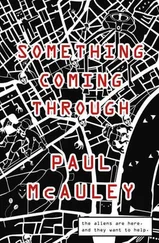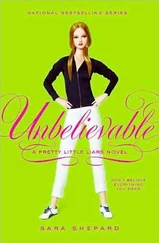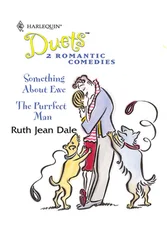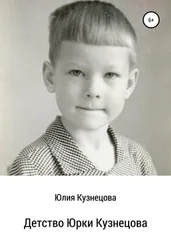Мария Кузнецова - Something Unbelievable
Здесь есть возможность читать онлайн «Мария Кузнецова - Something Unbelievable» весь текст электронной книги совершенно бесплатно (целиком полную версию без сокращений). В некоторых случаях можно слушать аудио, скачать через торрент в формате fb2 и присутствует краткое содержание. Город: New York, Год выпуска: 2021, ISBN: 2021, Издательство: Random House, Жанр: Историческая проза, на английском языке. Описание произведения, (предисловие) а так же отзывы посетителей доступны на портале библиотеки ЛибКат.
- Название:Something Unbelievable
- Автор:
- Издательство:Random House
- Жанр:
- Год:2021
- Город:New York
- ISBN:978-0-52551-191-5
- Рейтинг книги:3 / 5. Голосов: 1
-
Избранное:Добавить в избранное
- Отзывы:
-
Ваша оценка:
- 60
- 1
- 2
- 3
- 4
- 5
Something Unbelievable: краткое содержание, описание и аннотация
Предлагаем к чтению аннотацию, описание, краткое содержание или предисловие (зависит от того, что написал сам автор книги «Something Unbelievable»). Если вы не нашли необходимую информацию о книге — напишите в комментариях, мы постараемся отыскать её.
Something Unbelievable — читать онлайн бесплатно полную книгу (весь текст) целиком
Ниже представлен текст книги, разбитый по страницам. Система сохранения места последней прочитанной страницы, позволяет с удобством читать онлайн бесплатно книгу «Something Unbelievable», без необходимости каждый раз заново искать на чём Вы остановились. Поставьте закладку, и сможете в любой момент перейти на страницу, на которой закончили чтение.
Интервал:
Закладка:
Papa ran a hand along the metal bunk bed in the corner and smiled grimly.
“Funny,” Papa said. “These are the same beds we had in the orphanage. The exact same beds, it’s like they’ve lifted them out of Kharkov and brought them here. Well, it wasn’t as bad as I expected it to be there, and this will be more of the same. I made it through that and we will make it through this. If we stick together, we will do just fine here.”
Polya and I exchanged a rare sisterly glance. Papa never mentioned the orphanage, though it cast a shadow over our family that no present-day joy or sunshine could dispel. This showed how desperate he was to create order, though I knew it was a false comparison: his orphanage was in the center of a real city during peacetime, not in the steppe during an unknowable war. And perhaps the one-roomed orphanage was the reason he had insisted our family live in such close quarters in the past—it might have comforted him, to have everyone in such proximity, as it reassured him now to see the cozy space where we would live together, even if we all did have separate rooms. Or at least I hoped Papa was mentioning his orphan past to calm himself and us, instead of a more troubling alternative—that he was already losing his grip, that he no longer cared about what he did or did not say, because the rules we were accustomed to had been thrown out the window the moment we boarded the train.
How I dreamed of food during those early days! Flaky Napoleon. Airy meringues. Salty caviar on buttery blini. Herring sprinkled with pungent onions. I did not even particularly care for herring, but those early evenings I dreamed that my tongue had become a salty slice of fish, that I could soak in its rich juices with every swallow. Most of the foods I dreamed of, I must admit, were delicacies we were served at the Orlovs’ home, or even at my grandmother’s before her fall from grace, instead of the potatoes and salami my family had eaten in the communalka. I was not alone in my fantasies. All of us spent our time dreaming about food, making our meals last as long as possible, or scheming up ways to procure it.
The Sunday market was one source. This was all Baba Tonya lived for, linking arms with me and my sister on our way there like we were going to a ball, her head high in the air in spite of the smelly, dirt-stained boa trailing her, as if she were balancing a plate on the tip of her nose. Polina flirted with the aged radish brothers and got us a bit more food, but not enough to make a difference. Aunt Tamara was used to being waited on hand and foot and mostly sat around the house fanning herself while Mama bartered the few pieces of finery she had brought.
Bogdan made a heartier contribution than the market, becoming our savior early on. He would skulk away after dinner and return several hours later with a folded cloth napkin of goods without explanation—a few slices of bread here, a jar of jam there, which kept us from falling into complete starvation. Aunt Yulia began working for the government store of the aging but still mighty Madame Renata, which served a brick of black bread for each family every day, though everyone knew it was mixed with glue and sawdust. To her credit, though Aunt Yulia ignored us during the week, every Sunday morning she came to our door with a burlap sack of salvageable food. A few times, Polya and I had even rattled her doorknob out of desperation when she was out, hoping to find some extra fare, but she kept it firmly locked.
So it was only natural that when I spotted the interloper about a month into our stay, my first thought was that we could not afford another mouth to feed. He was a sight to behold. Just as the mothers were making dinner, the kitty entered the room with his tail high in the air and sauntered toward us like he was an invited guest, or even a visiting dignitary. He was an ugly-looking thing. A mangy gray-brown ball of fur, dirt all over his face, golden brown fluff around his belly. His eyes were huge, honey-colored, and he looked like he had never seen humans before. He was squinting a bit, as if blinded by the dim lights in the apartment.
Polya’s eyes lit up, but if she got any big ideas and tried to slip him any of our measly rations, I would yank all the hair off her head and stuff it in her mouth. Dinner consisted of what Mama managed to scrounge from the morning’s market, where she had bartered her last porcelain plate. What did one plate manage to get us? Three loaves of black bread, a handful of carrots, and a stack of dried fish to split among the nine of us—adding another stomach to the mix was out of the question. But my sister was already enraptured. She put a hand to her mouth and knelt to meet the creature at eye level.
“What a darling,” she said.
“A joy,” said Aunt Tamara.
“A mouser,” said Mama.
“A guard,” declared Uncle Konstantin.
“A comrade,” said Papa.
“A rascal,” said Bogdan.
“A brother,” said Misha.
“A toy,” said my grandmother.
I alone remained quiet, seeing no need in making a vapid declaration about the creature. I hardly had the strength to be cruel to my sister, which meant I was in a dire state.
Polya knelt down and crawled toward the abomination. Bogdan joined her in welcoming the beast, proving once more that he, too, was a simple creature. My sister reached out her hand while Mama told her to be careful, that this was a feral mountain kitty, that he was no Timofey from the courtyard and was liable to bite her nose off, but Polya giggled as the kitty came toward her and licked and licked her trembling hand. My sister had become the weakest of all of us, since she had so little weight to spare to begin with, and it almost felt good to see her happy.
Our crew had been short on joy recently; Mama and Aunt Tamara would come home from the factory, reeking of cleaning supplies, and the fathers and Misha would follow after, covered in soot and sweat, utterly drained, Papa having long forgotten his promise to take me there. We could not help but laugh as the little fur ball explored the premises while we ate our meal as slowly as possible to make it feel more expansive than it was. Once he had sniffed all four corners and the bunk beds and curtains and circled the stove a few times, he settled by my sister’s side and licked her hand again, and so she named him Licky.
“You be careful, now,” Mama warned her, studying him more closely. “He’s no ordinary cat. He’s a bobcat. He must have wandered out of the woods, poor thing.”
“He’ll be a big boy one day, you’ll see,” said Papa, his lips spreading into a thin smile. “A baby lion. You’ll be riding him all over town.”
“Don’t be silly, Papa,” Polya said, batting his arm. I rolled my eyes at Misha and he gave me a small shrug to show he agreed my sister was senseless, but what can you do?
Papa loved indulging my sister’s childishness. He spoke to her like she was about three instead of thirteen, treating her like the baby she wanted to be around him. He remained oblivious to how aware Polya was of her powers, how she batted her eyes at men if she wanted something, like an extra radish from the old radish brothers at the market, another day to complete a homework assignment from her teacher, or a flower from the groundskeeper’s meager garden back home. Papa would never deign to make such witless comments to yours truly; he knew I was reasonable.
Of course Polya would never be able to ride the cat, no matter how big he got, unless she shrank considerably. She looked so blindly happy, getting licked by her new friend, teased by Papa, that it was hard to focus on nibbling my bread crust. That night, Polina carried her new pet into her bed above me, cradling him like he was a baby, but he did not protest, though he seemed more eager to ardently lick his mangy fur than to be rocked to sleep. I could hear the foul creature licking and scratching as I tried to drift off. At the time, of course, I only saw the beast as a distraction, a nuisance. I had not a clue he would be my family’s undoing.
Читать дальшеИнтервал:
Закладка:
Похожие книги на «Something Unbelievable»
Представляем Вашему вниманию похожие книги на «Something Unbelievable» списком для выбора. Мы отобрали схожую по названию и смыслу литературу в надежде предоставить читателям больше вариантов отыскать новые, интересные, ещё непрочитанные произведения.
Обсуждение, отзывы о книге «Something Unbelievable» и просто собственные мнения читателей. Оставьте ваши комментарии, напишите, что Вы думаете о произведении, его смысле или главных героях. Укажите что конкретно понравилось, а что нет, и почему Вы так считаете.












